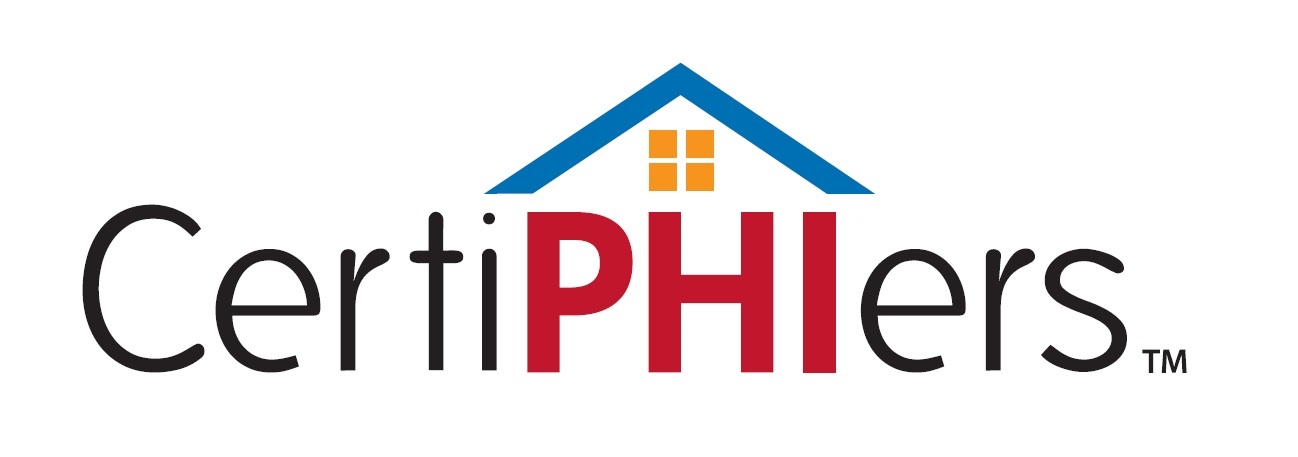A higher standard of moisture and thermal analysis is often required for today’s advanced enclosures. Thermal bridges, air leakage, and moisture flow can have larger impacts and pose greater risks for high performance enclosures, whether they’re high performance commercial assemblies designed to comply with Minnesota’s B3 Guidelines, or super-insulated enclosures for Passive House-certified buildings. New methods of qualitative analysis are available to help architects and engineers confidently design and specify these advanced enclosures.
In this 2-day training course, participants will learn in-depth techniques to analyze and evaluate their wall assemblies and details for moisture risk and thermal bridging. Participants will learn to use a variety of current software tools including the hygrothermal simulation WUFI Pro, Glaser, and condensation point calculators. New for the training this year will be in-depth instruction on how to evaluate details and junctions using the 2-dimensional heat flow simulation tool Flixo Energy Plus, which is a markedly improved and more user-friendly version of the program THERM.
The workshop will begin with a review of the building science principles of moisture and heat flow in above-grade wall assemblies and discuss why thoughtful design and analysis becomes increasingly important for higher performance enclosures.Most of the class time will be devoted to learning how to use and evaluate results from these tools, with a focus on WUFI and Glaser tools the first day, and thermal bridge and condensation analysis using Flixo the second day.Attendees will have the opportunity to model a mix of conventional commercial and high performance wall assemblies.Some prior experience with these topics is recommended.
First time users/purchasers of Flixo are eligible to register for a 1-yr Flixo Energy Plus license & USB dongle ($444 value) for a reduced price of $190. Session limited to first 20 registered. Course limited to first 20 registered.
Register Here
Learning Objectives
Upon completion, each participant will:
Understand the new requirements for achieving compliance with B3 Moisture and Water Control Guidelines.
Identify the major wetting and drying pathways for above grade walls, and define moisture safety.
Identify the four main control layers and describe the important features of each.
Describe the major types of moisture risk analysis and the appropriate uses and drawbacks of each type.
Understand how to perform a static moisture risk assessment using the Glaser calculator tool developed for the B3 Program.
Assess the results from a Glaser moisture risk analysis and use those results to design improvements to wall assemblies.
Understand how to perform a basic dynamic moisture risk assessment using WUFI.
Assess the results from a WUFI analysis and use those results to design improvements to wall assemblies.
Understand the major types and impacts of thermal bridges in a high performance enclosure.
Understand how to perform a condensation risk analysis at assembly junctions or details using 2-dimensional heat flow software.
Understand how to calculate an equivalent R-value for a non-homogenous wall assembly using Flixo.
Understand how to calculate the additional heat loss from linear thermal bridges at assembly junctions or details using a psi value.
Course Requirements: All participants should arrive with a laptop loaded with WUFI Light v6.3 (free, limited to 4 weeks) and Flixo Energy Plus. Participants can choose to either take advantage of the discounted full version of Flixo Energy Plus (rolled into the registration cost) or a free demo version of Flixo Energy Plus (version 8) is available for download (30 day limited). The Flixo demo works on PCs with Windows installed or Macs with Windows installed (via Bootcamp, not other Virtual Machines). The paid version of Flixo supports virtual machines on both Windows and Mac.
Instructors: Rolf Jacobson, Center for Sustainable Building Research and Chris Petit, CertiPHIers Cooperative
Date: October 10th and 11th, 8:30am – 4:30pm
Location: University of Minnesota - 225 Rapson Hall - 89 Church Street SE, Minneapolis, MN 55455
AIA LUs: pending approval
Intended Audience: Architects, engineers, energy modelers, Passive House consultants, designers and other building professionals who want to build on their skills of moisture risk analysis and thermal bridge modeling.
Registration link: http://www.eventdex.com/moisture-risk
Registration questions: Chris Petit chris@certiphiers.com
Course questions/info: Rolf Jacobson jaco0630@umn.edu
Costs:
1) Early bird registration in effect for all registrants through September 19.
2) Registration discount available for B3 Project team members, NAPHN and PHAUS members.
3) The discounted 1-yr license & dongle will be provided on the first day of the course. The discount is only available to first-time users/purchasers of Flixo and is dependent on full completion & participation in the course.
Cancellation Policy: If you cancel your registration more than three weeks from the scheduled course, you will receive 100% of your course fee. If you cancel between one and three weeks of the scheduled course, you will receive 50% of the course fee. If you cancel within a week of the scheduled course, you will forfeit your course fee.
Rolf Jacobson
Rolf Jacobson is a Research Fellow and Certified Passive House Consultant (CPHC) at the Center for Sustainable Building Research (CSBR). Through the Fulbright program, Rolf conducted research in Norway on the building science of Passive House envelopes optimized for cold climates. While there, he used energy and moisture modeling tools such as WUFI and THERM to investigate and evaluate a wide range of residential building assemblies. More recently, Rolf has helped the NorthernSTAR Building America team conduct research on a variety of topics such as an in-situ study of residential ground source heat pumps and innovative panelized construction systems. His work at the CSBR is primarily focused on high performance affordable housing and Minnesota’s Sustainable Building B3 Guidelines.
Chris Petit
Chris is a Certified Passive House Designer, Tradesperson & Trainer with Regenerative Design LLC and a PHI Certifier with CertiPHIers Cooperative. He has provided design support and energy modeling services since 2008. Through CertiPHIers, Chris has certified Passive House projects in the US and Canada. In addition to his work with CertiPHIers, Chris teaches sustainable design, energy modeling, and renewable energy. He holds a MS in Architecture from the University of Minnesota.




